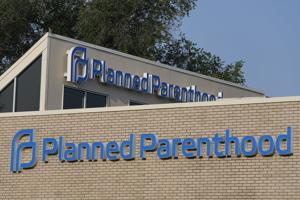A significant legal challenge has emerged as more than twenty states, predominantly led by Democrats, have initiated a lawsuit against the Trump administration’s contentious efforts to curtail Medicaid payments directed towards Planned Parenthood, the nation’s largest provider of abortion and reproductive health services. This collective action highlights a deepening divide over healthcare funding and access, setting the stage for a high-stakes legal battle with far-reaching implications for millions of Americans.
The lawsuit directly responds to a package of tax breaks and spending cuts signed into law by the then-President, which included provisions designed to cease Medicaid reimbursements for a year for major providers of family planning services. These cuts were specifically aimed at services critical to public health, such as cancer screenings, birth control, and treatment for sexually transmitted infections, rather than abortion services which are already largely excluded from federal funding.
While the legislation’s primary target was undeniably Planned Parenthood, the wording of the cuts was broad enough to inadvertently affect other significant medical providers, including a major organization in Maine. This broader impact underscores the potential ripple effect of such policies, extending beyond the intended targets to disrupt healthcare infrastructure for diverse patient populations across various states.
In their complaint filed in the U.S. District Court for Massachusetts, states including California, New York, Connecticut, and Washington, D.C., argue that the provision suffers from ambiguous language regarding its application. Furthermore, they contend that the measure constitutes retaliation against Planned Parenthood for its advocacy of abortion access, thereby violating the free speech clause guaranteed by the First Amendment.
California Attorney General Rob Bonta articulated concerns at a news conference, stating that these cuts severely threaten essential healthcare access for many low-income Americans who rely on these services. The states argue that forcing Planned Parenthood clinics to reduce or cease operations could inadvertently escalate overall medical care costs in the long run, as patients would seek care elsewhere, potentially in more expensive settings, or states would be compelled to use their own funds to maintain services.
Conversely, a spokesperson for the Trump administration, Andrew G. Nixon, asserted that “States should not be forced to fund organizations that have chosen political advocacy over patient care,” criticizing the Democratic attorneys general for allegedly seeking to undermine state flexibility and disregard longstanding accountability concerns. Connecticut’s Democratic attorney general, William Tong, countered, emphasizing the dire choice states face: either violate constitutional rights and push patients to non-existent alternative providers or incur significant state-level expenses to cover the services.
This new multi-state lawsuit follows earlier, separate legal challenges initiated by both Maine Family Planning, which operates eighteen clinics offering a wide range of services statewide, and the Planned Parenthood Federation of America itself. Despite not being explicitly named in the legislation, Planned Parenthood maintains that the provision was specifically designed to impact its nearly 600 centers across 48 states, with about a third of these clinics potentially facing closure due to the cuts.
The organization warns that such closures would strip vital care from over one million patients, highlighting the severe consequences for healthcare access and public health. Maine Family Planning, for instance, reported having only enough reserves to continue seeing Medicaid-covered patients without reimbursements through October, underscoring the immediate financial strain on crucial healthcare providers and the vulnerability of healthcare access points.
It is important to note that existing federal law already prohibits taxpayer money from covering most abortions, a point often emphasized by conservatives who nevertheless argue that abortion providers misuse Medicaid funds for other health services to indirectly subsidize abortion-related activities. This ongoing debate frames the core of the legal and political conflict surrounding the future of Medicaid funding for reproductive health organizations.






Leave a Reply